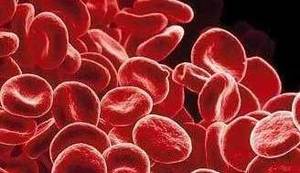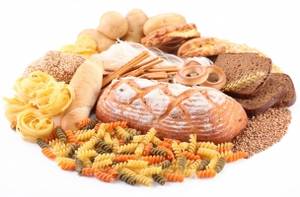Running a marathon is one of the most intense physical challenges one can undertake, and a question that often comes up is: What energy sources keep a runner moving for 26.2 miles? The answer is a fascinating combination of biology, nutrition, and smart strategy. Let’s explore the specific fuels that power your body through every step of the race, supported by the latest scientific data and expert recommendations.
Carbohydrates: The Primary Fuel Source
Did you know that carbohydrates are the primary energy source for endurance athletes? Carbs are stored in the body as glycogen, primarily in muscles and the liver. During a marathon, glycogen is broken down into glucose, which is then used by muscles to sustain high-intensity activity. According to research, an average runner has enough glycogen to last for about 90 to 120 minutes of sustained running at marathon pace.
Why do runners “hit the wall”? This term is often used to describe the point where glycogen stores are depleted. At this stage, many runners experience a significant drop in energy, commonly referred to as “bonking.” This is when the body starts transitioning to burning fats as the primary fuel source, which is a much less efficient process. Proper pre-race carbo-loading, such as increasing carbohydrate intake to around 8-12 grams per kilogram of body weight, can delay or even prevent this energy crash.
Fat Metabolism: The Backup Generator
What happens when glycogen runs out? After glycogen levels are significantly depleted, the body shifts to burning fat stores for energy. Fats are an abundant energy source, but the breakdown process is slower compared to carbohydrates. This is why, as glycogen becomes scarce, runners might find themselves slowing down—the energy derived from fat oxidation simply cannot match the intensity sustained by glycogen.
Interestingly, the average runner has enough fat stored to potentially run hundreds of miles. However, tapping into these stores at a useful rate requires well-developed aerobic conditioning and a strategic pacing plan. Studies show that seasoned marathoners can increase their ability to burn fat, delaying glycogen depletion and improving performance.
Protein: Minimal but Essential
Does protein provide energy during a marathon? The role of protein as an energy source is relatively minor during a marathon. Protein primarily serves as a building block for muscles and tissues, but during prolonged endurance activities, a small percentage of energy can come from amino acids, especially when carbohydrate reserves are low.
A study in the Journal of Sports Medicine suggests that about 5-10% of the total energy expenditure during a marathon may come from protein—especially in the latter stages of the race when glycogen stores are exhausted. To mitigate muscle breakdown, athletes are often advised to consume enough protein throughout training, ensuring muscles are adequately prepared and repaired.
A Complex Balance: Nutrition Strategies for Marathon Success
The ideal nutrition strategy for a marathon involves optimizing glycogen stores, enhancing fat oxidation, and ensuring there are sufficient electrolytes for muscle function. In practical terms, this means consuming the right types of carbohydrates before and during the race, maintaining hydration, and possibly taking in small amounts of protein or amino acids.
“Did You Know?”
- Gels and Drinks: Many runners use energy gels and sports drinks during a marathon. These products typically contain simple sugars to quickly replenish glucose levels. An energy gel packet usually costs around $1.50 to $3.00, depending on the brand and added electrolytes.
- Caffeine’s Effect: Consuming caffeine has been shown to increase endurance performance by enhancing fat oxidation and glycogen sparing. In a meta-analysis from 2023, caffeine improved time-to-exhaustion metrics by an average of 3-4% for endurance athletes.
Electrolytes: Small But Mighty
While carbohydrates and fats are the major fuel sources, electrolytes play a critical supporting role. Electrolytes such as sodium, potassium, magnesium, and calcium are essential for muscle contraction and nerve function. Without proper electrolyte balance, runners may experience muscle cramps, fatigue, or even more serious issues like hyponatremia (low sodium levels in the blood).
How much should you hydrate during a marathon? There’s a delicate balance between staying hydrated and avoiding overhydration. Experts recommend drinking to thirst rather than following a strict schedule, as fluid needs vary depending on conditions like temperature and humidity. Sports drinks containing electrolytes can help maintain optimal levels, especially in longer or hotter races.
Fueling for the Finish: Practical Tips
- Carbohydrate Loading: Two to three days before the race, increase your carbohydrate intake to maximize glycogen stores. Aim for 8-12 grams per kilogram of body weight.
- Pre-Race Meal: On race day, consume a high-carb, low-fiber meal 2-3 hours before the start to top off energy reserves without causing digestive issues.
- During the Race: Take in 30-60 grams of carbohydrates per hour. Energy gels, chews, or sports drinks work well for this, keeping your muscles fueled and glycogen levels stable.
- Electrolytes Are Key: Use electrolyte tablets or drinks, especially in warm weather. An imbalance can quickly lead to fatigue or muscle cramps.
Our Editorial Advice
Running a marathon is a journey of perseverance, strategy, and a deep understanding of your own body. The right combination of carbohydrates, fats, electrolytes, and, to a lesser extent, proteins will keep you powered through to the finish line. Take time to experiment with your nutrition during training runs, figuring out what works best for you. Preparation and personalization are the cornerstones of a successful marathon experience. And remember—listen to your body, stay hydrated, and keep fueling smartly.









